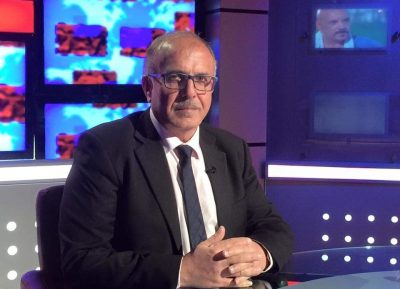Economic and Financial Collapse: “Saudi Crown Prince has a new plan for Lebanon”
Interview with Professor Hussein Gharbieh

All Global Research articles can be read in 51 languages by activating the Translate Website button below the author’s name.
To receive Global Research’s Daily Newsletter (selected articles), click here.
Click the share button above to email/forward this article to your friends and colleagues. Follow us on Instagram and Twitter and subscribe to our Telegram Channel. Feel free to repost and share widely Global Research articles.
***
Lebanon remains in a state of financial, political, and social collapse. Lebanon is flying on autopilot without any President. In the south of Lebanon on the border with Israel there is increasing tension as Israel has attempted to steal more Lebanese land.
Steven Sahiounie of MidEastDiscourse interviewed Professor Hussein Gharbieh, Lebanese International Relations and Middle East Lecturer to talk about the latest developments and situation in Lebanon.
Steven Sahiounie (SS): The Lebanese economy is on the edge of collapse. However, the IMF has offered Lebanon $3 billion but this deal is not acceptable to all parties. In your opinion is there any other solution offered?
Professor Hussein Gharbieh (PHG): We must admit that the Lebanese economy has collapsed. The infrastructure has come to a halt. No proper banking system available as the lost people’s trust. Even the service sector is unreliable and requires huge amendment to function properly. And finally, the public sector is under tremendous stress because of the huge gap between the monthly salaries and the actual exchange rate of the dollars in the black market. Therefore, the 3 billion dollars offered by IMF firstly is not to revitalise the Lebanese economy. Secondly, the Lebanese government has not provided a plan as how this amount of money would be used to improve the Lebanese economy.
SS: The Lebanese parliament has failed in electing a president. In your opinion, will the reconciliation between Saudi Arabia and Iran have an effect on the election?
PHG: Electing a Lebanese president has never been an internal issue. Since the establishment of the Lebanese republic, the president has always been a matter of compromise between conflicting regional players. The French and the British played a vital role in electing a certain president as it happened with President Emile Edde, bishara al Khuri and Kamil Chamoun. In the sixties the influence shifted towards the Americans and the Egyptians, while in the seventies the main player of choosing a president was Syria alone for many reasons.
The Iran-Saudi approach today might help to produce a Lebanese president. However, whether to happen we must wait and see. That is because of various reasons. Firstly, the Iran-Saudi approach has not completed fully to understand the magnitude they will exert to help elect a Lebanese president. Secondly, following the rapprochement of both Syria and Saudi could have an effect of the election as well. Still the picture is very unclear and bleak as there is no a near sight of electing one. Syria, Iran and Saudi Arabia have more important issues to deal with. Lebanon does not have the same importance as before.
SS: Benjamin Netanyahu has severe domestic problems and has tried to deflect from his own problems by creating increase tension on the Lebanese/Palestinian border. In your view, will we see open conflict between Israel and Lebanese resistance forces?
PHG: I would say that an Israeli and Lebanese resistance open conflict is very unlikely to happen for various reasons. Firstly, an open war will cause a lot of damage to both sides but one more than the other. If it happens, the Lebanese will suffer to a great extent. While on the Israeli side, the damage would not be as alarming which they can deal with it quickly and efficiently, i.e., the damage will be minimal. On the other hand, Israel will not be able to uproot Hizballah. Therefore, I strongly believe that both sides understand this and are happy with the status quo.
SS: Media reports have exposed Samir Geagea has having fed false information about Saad Hariri to Saudi Crown Prince Mohammed bin Salman? In your opinion, will this open the door for Saad Hariri return to Lebanon?
PHG: I don’t think the Saudis depended on Geaga to provide them with information about Hariri. When Hariri was summoned to Saudi Arabia, it was mainly because of an internal issue where Hariri was involved in. Bin Salman has had a new set of agenda where Hariri or for that matter Lebanon were not in his priorities. The fragmentation of the Sunni community in Lebanon today is a clear evidence that Lebanon is no longer worthy of attention.
SS: Some experts have suggested Suleiman Frangieh for president. In your view does he have the international support?
PHG: The fragmentation of the Lebanese communities today makes it very difficult for anyone to be president. Although Frangieh has close ties with Syria and with President Assad in particular, yet the Lebanese opponents to the pro-Syria side will not accept him as a president. As mentioned before, not of the regional players are interested in Lebanon now.
*
Note to readers: Please click the share button above. Follow us on Instagram and Twitter and subscribe to our Telegram Channel. Feel free to repost and share widely Global Research articles.
This article was originally published on Mideast Discourse.
Steven Sahiounie is a two-time award-winning journalist. He is a regular contributor to Global Research.
Featured image is from MD

